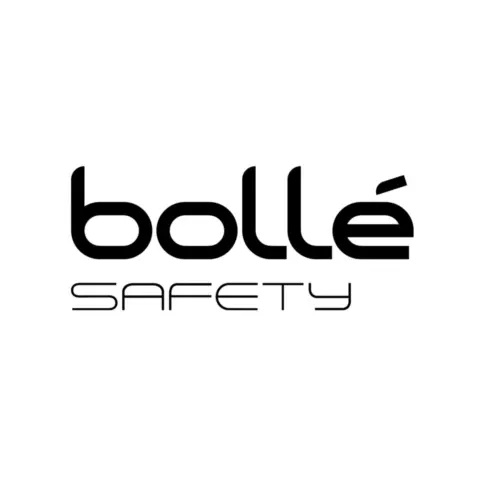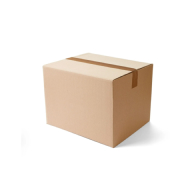Bolle Safety Squale spectacles clear
Product description
OTG (Over-The-Glasses, On-The-Go) safety glasses with a clear lens for general work use and for visitors. Ideal for conditions with strong artificial lighting. Depth-adjustable temples. Designed to be worn over spectacles and to provide comprehensive protection. Delivery includes neck cord. Anti-scratch and anti-fog coated lens.
Protects against UVA, UVB and UVC rays as well as low-allergic mechanical risks (6 mm, 0.86 g metal ball 45 m / s), even at extreme temperatures. Also offers extra protection from the top and bottom. Optics class 1: Designed for long-term continuous use.
Technical information:
Frame marking: EN166 FT CE
Lens marking: 2-1.2 1 FT CE
Certification: EN166, EN170
UVA / UVB protection: 99.99%. In addition, UVC protection up to 190 nm
Temples: Polycarbonate + Nylon
Lens: Polycarbonate. Thickness 2.0 mm
Curvature class: 4
Weight: 43 g
Delivery includes:
CORD: Cordc neck cord
We recommend sharing these with the Bollé Safety BSDSP Dispenser 10 glass rack, which can be attached to a wall in the visitor reception area or other location before visiting the site.
Essential safety information for those working in artificial lighting:
To protect against invisible but dangerous UV radiation from artificial light, it is essential to check the wavelength of the light produced by the luminaire: UVA (315-380 nm), UVB (280-315 nm) or UVC (100-280 nm). At the same time, it should be noted that the test methods of the EN166 eye protection standard do not include protection against UVC at all! The EN166 standard includes a UV light filtration test only between 280 nm and 380 nm, which is why almost all goggles on the market only protect against UVA and UVB rays. To protect against UVC (eg in quality control in the electronics industry), we recommend choosing Bollé Safety Contour (ESP or clear), Axis (Contrast or clear), Mamba (clear) or Viper (clear) and Squale (clear); these models have lens providing protection at UVC wavelengths from 190 nm to 280 nm.
Of the lens materials of the safety glasses:
When you need comprehensive UV protection, you may want to choose a polycarbonate supplement; it provides protection from UVA and UVB, and the best also from UVC.
Defines the frame's structural design that affects coverage, compatibility with other PPE, and fit features like adjustability or over-glasses capability.
Measured in grams or kilograms, indicating how heavy the eyewear is when worn. Lighter glasses reduce fatigue during extended use in industrial settings.
Indicates the lens material's measured thickness, directly affecting impact resistance, optical clarity, and overall weight for comfortable extended wear.
Numerical rating indicating lens quality and visual clarity. Higher ratings ensure minimal distortion, reduced eye strain, and optimal visibility for precision tasks.
The composition of the lens that determines impact resistance, optical clarity, and protection against specific workplace hazards like debris, chemicals, or radiation.
The composition of the frame that affects durability, weight, comfort, and resistance to chemicals or impacts — crucial for selecting appropriate protection for specific workplace hazards.
Indicates the tint of protective lenses that filter specific light wavelengths, enhancing visibility and reducing eye strain in various work environments.
- UV Protective
- Eye Protection
Request a free sample
Test first and buy later. Visit any product page to request your free sample.
Standards and labels
Test results
Service Reliability PassedEN ISO 9001:2015 is a globally recognized standard that specifies requirements for a quality management system (QMS), focusing on numerous aspects of quality management in organizations, aiming to enhance customer satisfaction through the effective application of the system. The 'Service Reliability' with a 'Passed' designation indicates that an organization has successfully demonstrated its ability to consistently provide services that meet customer and regulatory requirements while aiming for continual improvement. This assessment involves evaluating various elements of the QMS including service planning, execution, and monitoring, to ensure reliability and performance consistency. The practical implications for organizations that pass this aspect of the standard are significant; it establishes them as reliable providers in their industry, enhancing customer trust and satisfaction, and potentially leading to increased business and a competitive advantage.
Test results
Mechanical Strength FEN 166:1995 is a standard that specifies requirements for personal eye protection in various environments, focusing on the durability and safety of eyewear. The 'Mechanical Strength F' designation indicates that the eyewear has been tested and certified to withstand low-energy impact, specifically able to resist a 6 mm, 0.86 g ball traveling at 45 meters per second. This test involves firing the ball at the protective eyewear to ensure it can protect the wearer's eyes from such impacts without breaking or causing injury. Eyewear meeting the 'F' result is suitable for use in environments where there is a risk of smaller, slower-moving projectiles, such as in woodworking, light manufacturing, and general laboratory work. This level of protection helps prevent eye injuries from low-energy impacts, enhancing safety for individuals in these settings.
EN 170:1986 is a European standard that defines the requirements and test methods for the performance of smoke control systems in buildings. The standard specifies the minimum levels of performance that the system must meet, as well as the methods that should be used to test the system to ensure it meets these requirements. Possible test results include the ability of the system to control the spread of smoke, the airflow rate and pressure drop of the system, and the resistance to fire spread.
Test results
Ultraviolet Filter 100 %CE Marking is a label that shows a product meets certain safety and environmental standards set by the European Union. To get the CE Marking, a company must test and certify their product meets these standards. CE Marking is required for many products sold in the EU, including electronics, machinery, toys and medical devices. It helps ensure that products are safe for consumers and the environment, and allows for easy trade within the EU.
Bolle Safety delivery terms
Free delivery when you order more than 150,00 € from Bolle Safety
Supplier shipping fee 6,33 €
Brand minimum 0,00 €
104,74 €
Price per 10 pcs
10,47 € / piece
Shipping fee is 6,33 € for orders under 150,00 €
A package contains 10 pieces
Need larger quantities?
Other products you may like
Recently viewed
Need help?
Get help from our experts
Other products you may like
Similar products you may like
Recommended for you
Bolle Safety
Delivery time: 3 business days
Supplier shipping fee 6,33 €
Free shipping on orders over 150,00 €



Find +150,000 products from hundreds of brands
Autonomous sourcing platform
The most efficient way to source and order supplies for your operations
Sourcing
Ordering
List products you’re looking for and we’ll find the best products and prices for you – all for free.
Need help?
Get help from our experts
